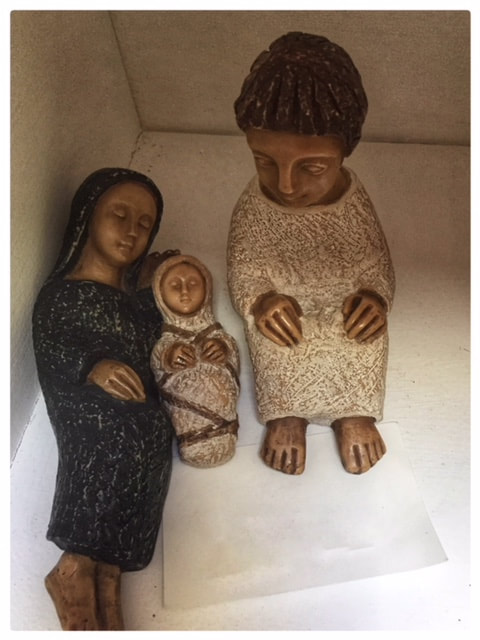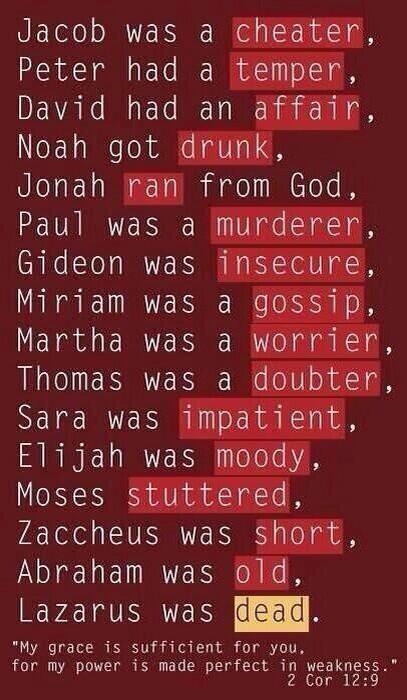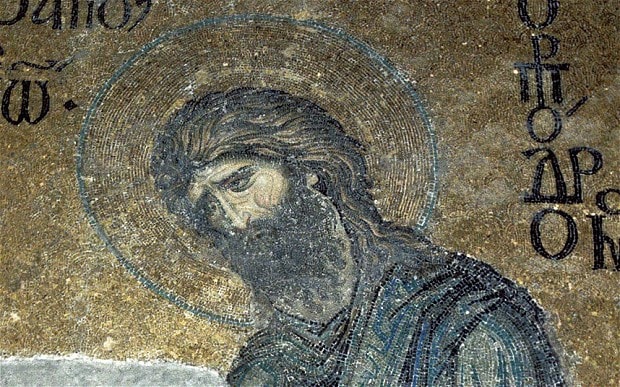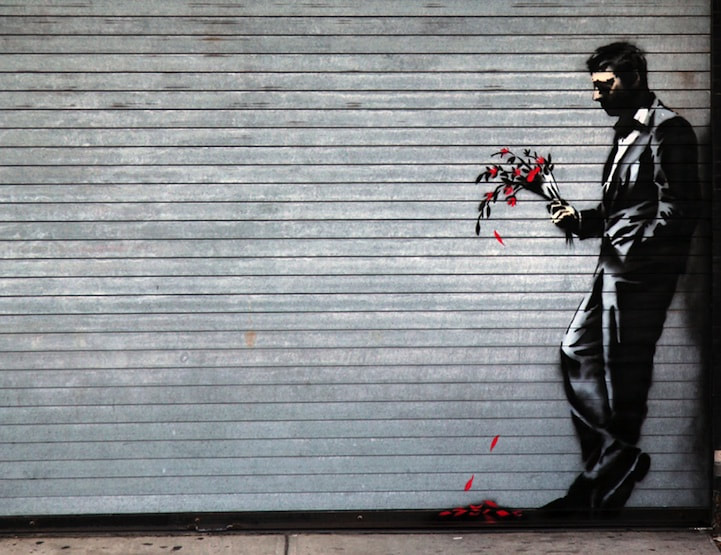As we stand in the glow of Christmas, Paul’s words reminds us that we need to think differently about who we really are. It seemed like the big Christmas gift to give this year was DNA testing from websites like Ancestry and 23 and Me. I assume this gift is so popular because we know the holidays bring out certain family traits that might make you wonder where they came from.
Those who have had their DNA tested know more about their genetic make-up, uncover certain health traits, and some people, like our friend Becky, have found family members they didn’t know they had. With all the great things genetic testing can produce, it can’t change your family, or the baggage each person brings with them. Whether you are from a healthy family or a broken family we all have our social position (or birth order) in the family that defines who we are. For example Kathleen is number 5 of 9 kids. She is often seen as the fulcrum that balances the family dynamic. If you are a middle child, then I image you, Kathleen and Colleen have some things in common. I cannot speak to them, because I am the last of 4, the baby of the family. If you are like me, your siblings often see you as the spoiled and getting away with everything. I’m not sure that is totally accurate. But I do think the last-born are our parent’s favorite because we’re their last chance of getting it right. Hierarchical patterns are found throughout our society. Most corporations, governments and religious communities are set up in a way where each person has their own particular place of power and prestige. In India, the cast system still divides their society into different social classes; the easiest way to rise up through the ranks is by death and reincarnation. We might be quick to think we are different. Even though our constitution states, “All men are created equal,” our country’s story would suggest otherwise. The good news is (and I hope you remember this as you either gather with or runaway from family functions this holiday season) that no matter where you are born, in whatever order, or to whom your birthright belongs, we are all created equal in the eyes of God. Through Christ, each one of us was given the same blessing of salvation, even if our lives seem radically different. As we stand in the glow of Christmas, Paul’s words reminds us that we need to think differently about who we really are. To summarize Paul, “God sent his Son, born of a woman, to redeem us and adopt us as his own children. As a child of God, you’re also an heir, with complete access to the inheritance” (Galatians 4:4-7) Some children inherit great financial wealth; others receive great debt. One might get their mother’s eyes, while the other inherits his grandfather’ high forehead. This is not the inheritance that Paul is talking about. He points us towards our divine DNA. Created in the image of God, we are born blessed by God. And thanks to our Christmas gift of salvation, we become a new creation. Through this little baby, wrapped in swaddling cloth, every person in the world receives an equal portion of the same gifts and grace; the same love and forgiveness; the same salvation from sin. Through Christ we are reconnected to God. Through him we share not only a name, but a heart; one love, and one forgiveness of all we’ve done wrong. This DNA makes us part of a process much greater than our parents creating a biological exchange. It might be hard to believe that little old you could be that special or important to God. But you are. To think that Jesus chose to leave all his heavenly glory, emptying himself and taking on the form of a slave just to give himself up for you and me. As John the evangelist declares, “The Word became flesh and lived among us, and we have seen his glory!” More than that, Jesus didn’t just become human for a minute or an hour or a day and then go right back to heaven. He lived among us for thirty-three years, enduring the messiness, the heartbreak, the inconvenience, the joy, and the pain of human life. There was no reason for him to suffer the pain he went through. From getting sick to getting in arguments to having clueless disciples to the excruciating suffering he experienced on the cross, Jesus proved that God’s love for us would never abandon us to suffer alone. Jesus entered our pain willingly because he wanted to go to the darkest depths of human suffering. He wanted to meet us in those places we all find our self, some of us more than once. Rich or poor, black, brown or white, male or female...the darkness of life does not discriminate. And neither does God’s Love that shines brightly through Christ, and through us. Because God made the choice to share Godself with us in human form, we have not only seen God in Jesus Christ. But through him we have received new status, and become a new family. Nothing can separate us; not death, divorce, or differences of opinions that cause us to turn on one another. “Nothing,” says the Apostle Paul, “can separate us from the love that God gives through Christ Jesus” (Romans 8:38-39) DNA testing might tell you of some impending health issue, or help you better understand why you have brown eyes while everyone in your clan has blue eyes. But we don’t need to mail in our saliva to know who we belong to and from where we came. As children in this divine family, we are all created equal, and we are all loved equally. We need not only to recognize this in our own life (with its faults and failures) but also in the follies and foibles of others. If God is in us, then God is also in others. And so a true test, then, of our DNA is seen in the way we seek out God in the heart of every human being. When we can see God in others, we can give freely and fearlessly of ourselves to others. When we recognize and realize that the blood of Christ is mixed with the blood of everyone around us, then we can share the gift of love and grace with everyone around us. The gift we received at Christmas is the gift that keeps on giving. As we move forward into a new year, let us not look back from which we came, but look ahead, to see the person right there in front of us. For each human being is the one who points us towards the Kingdom of God, our place of salvation and redemption. Work Cited: Rice, Whitney. In the Beginning. From episcopaldigitalnetwork.com, 12-30-17.
Then there’s the man. He knows he’s not the father of this child, and yet he knows someone has to do something. But what? And so he sits. Upright but not so proudly. There is great weight dragging on his shoulders. Resentment, or perhaps anger, buried in the crag of his furrowed brow. He’s asking, “What the hell have you done?” To himself. To God. Awaiting an answer that doesn’t seem to come.
Nobody pictures themselves raising a family on the streets, unable to provide simple necessities like food and shelter. Inbetween them a baby is asleep. Wrapped only in a blanket. Lying on the same hard rocks and filth stained dirt. Feeling the same cold wind, hearing the same unfamiliar sounds of a foreign land. It’s only a matter of time before he soils his only earthly possession. His eyes are closed. He is asleep. Unafraid. Unconcerned. Unharmed. It will be years before he will asks, “what?” or “how?” But right now, in this raw nativity scene, he is forever at peace. An unspoken light within him draws this woman and this man close. He has yet to realize that the streets are no place for a family, or anyone, to live. And as if now, he has no idea that one day he will draw all people close to his internal light. The heavens, and all that is in it, will be his home. And by the words he speaks and by the love he shows those who come to him will always have a home. Through his hospitality and charity all will find shelter and food, protection and peace, to call their own. For him God will provide. Through him God will prevail. And so will all who draw towards the light. One baby. A mother. And a man who will accept the responsibility to see that this light shines forever. Thanks Seth Godin: What you say is not nearly as important as what we hear. Which means that the words matter, and so does the way we say them. And how we say them. And what we do after we say them. It takes two to be understood. Not just speaking clearly, but speaking in a way that you can be understood. Empathy is not sufficient. Compassion is more useful, because it's possible to talk to someone who is experiencing something that you've never experienced.
Some tasty thoughts and inspiration I'm sharing with you. They are not my thoughts, but they penetrated my heart. I hope they penetrate yours as well. This is not me but Richard Rorh on Marcus Borg:
“In his book Jesus and Buddha, New Testament theologian Marcus Borg (1942-2015) highlights numerous sayings in the teachings of Jesus that are strikingly similar, if not identical, to the teachings of the Buddha who lived some six centuries earlier. There have been some attempts to explain these similarities through historical access, which is a remote possibility. Borg suggests a more meaningful view: that Jesus and the Buddha had both discovered the same spiritual goal and destiny, or I would say the one Holy Spirit that is guiding all of history.”
“Christianity became so concerned with making sure everybody believed that Jesus was God (faith in Jesus) that we largely ignored his teachings on detachment, simplicity, nonviolence, and anxiety (the faith of Jesus). Our Buddhist brothers and sisters can help us remember these teachings at the core of our faith; they can help us be better, truer Christians.”
”Could it be that now is the time, at long last, for Christians to migrate to the vision shared by its original founder and his original followers? . . . If Christian faith can be redefined in this way, if our prime contribution to humanity can be shifted from teaching correct beliefs to practicing the way of love as Jesus taught, then our whole understanding and experience of the church could be transformed . . . [into] a school of love.
“What I believe can and should happen is that tens of thousands of congregations will become what I call “schools” or “studios” of love. . . . What I care about is whether they are teaching people to live a life of love, from the heart, for God, for all people (no exceptions), and for all creation. . . . “If our churches make this migration, if they make the way of love their highest aim, they will experience what Paul prayed for in his Epistle to the Ephesians: their members will be “strengthened in [their] inner being with power through [God’s] Spirit, [so] that Christ may dwell in [their] hearts through faith, as [they] are being rooted and grounded in love” (3:16-17). They will employ every text, prayer, song, poem, work of visual and dramatic art, ritual, rite of passage, and other spiritual resource to help people comprehend “what is the breadth and length and height and depth, and to know the love of Christ that surpasses knowledge, so that [they] may be filled with all the fullness of God” (3:18-19). An excerpt from Sojourners that is a must read:
https://sojo.net/articles/does-your-church-follow-jesus “After a brief reflection, the church said to Jesus, we’ve done a small portion of all of these things, what do we still lack? Jesus pleadingly looked at the church and said, if you would be perfect, go, sell all you possess and give to the poor, sacrifice all of your power and give to the weak, exchange all of your control and give to the helpless, forfeit all of your privilege and give it to the downtrodden, abandon all of your popularity and bestow it upon the helpless, and when you do all of this then you will have treasure in heaven, so now come, and follow me!” https://sojo.net/articles/does-your-church-follow-jesus
You might recall from last week that advent is a time of active waiting, where “how” we wait is just as important as “who” we are waiting for. We talked about the importance of being intentionally present, living life fully and faithfully in the moment, right now, as a means to draw us nearer to Christ. Thus Jesus warned us to stay alert, for we do not know the time when the Lord will come. This week, it’s John the Baptist’s turn to awaken us with a little cold water, so to speak.
Each of the gospels use the words of the prophet Isaiah to describe John as a voice, crying out from the wilderness, preparing the way of the Lord. He is the one who teachers us “how” we prepare is just as important as “who” we are preparing for. Are you seeing a pattern here? If you want to put Christ back into Christmas, then you must be prepared to be like him; to prepare yourself to be the presence of Christ for Christmas. Again the lectionary doesn’t begin his Christmas story with angels whispering in Mary’s ear or shepherds keeping watch over their flocks. Instead, ite drags us outside, deep into the wilderness where bandits gather and thieves hide. It takes us way out there to meet an odd character who rants and raves to anyone who will listen. Some recognized him as a priest. Others saw him as a madman. Barbara Brown Taylor describes him like this. “Dressed in animal hair with a piece of tanned hide around his waist, his breath heavy with locusts and wild honey, John proclaimed that someone was coming, someone so spectacular that it was not enough simply to hang around waiting for him to arrive. It was time to get ready, to prepare the way, so that when he came he could walk a straight path right to their doors.” It’s time to get ready and to prepare a path that will lead God right into our hearts! This is the good news. Our Emmanuel, God with us, is coming to meet us. God desires to walk with us, and to heal our brokenness and to wash us clean of all that we have done wrong. God wants to give us a fresh start so we can truly thrive in God’s will and not merely flounder in our own. “John was a messenger-predicted by Isaiah, dressed like Elijah, sent by God- a prophet in the classic mold.” His message is to the point: Repent. Come clean and turn back to God. Be prepared, not just to welcome Christmas, but to welcome Christ, our Emmanuel, God’s great gift to us. Why then does it take a fire or natural disaster to remind us of this important message? To live faithfully in Christ’s divine love is to remain open and present to receive God anytime, day or night. It was Jesus who taught us to recognize God in the hearts of every created being. We must stay alert and prepare to do the same, to give God’s love away to anyone who needs it. We must straighten the curves and rough places in life so others can walk with God, and find forgiveness and become new again. Just as students have to be ready to meet the demands of a teacher who has prepared lessons for the week, we too must be ready to face the test and challenges of life whenever they pop up. It’s like preparing a grocery list to ensure you have all the right ingredients needed to create and enjoy a heavenly feast. It’s prophets like John who instruct us in our preparations. For example, Micah tells us to “practice justice, love kindness, and walk humbly with God.” Ezekiel says, “Turn away from your transgressions, and get a new heart and spirit.” And Isaiah declares, “Wash the blood off your hands. Remove evil from your heart and do good; seek justice, rescue the oppressed, defend the orphan, plead for the widow.” The list goes on and on. You see why people often tend to avoid these guys. “They’re much like those evangelists you might see standing on busy street corners waving their Bibles at you,” condemning you to hell, fire and damnation unless you repent in a way that is to their liking. They get right in your face, and the only way to avoid them is to cross the street or turn around and go another way. But John was different. “He planted himself in the middle of nowhere, far away from the churches and old ways of doing things. Anyone who wanted to hear what he had to say had to go to a lot of trouble to get there.” They had to get out of bed, and hike through rough terrain, put their life at risk. What were they seeking? Or better yet, what did they expect to find or do once they got there? As Taylor points out, it seems “People were drawn to John not only because of who he was and what he said…but also because of what he offered them: a chance to come clean, to stop pretending they were someone one else and to start over again, by allowing him to wash them off.” Yes, far off the beaten trail, John was preparing the way for God to come and radically redefine the world through the forgiveness of sin. This is the path that leads us all back to the heart of God… where Christ’s love was born. This is the Christmas story. Today that voice still cries out in our wilderness; calling us to wake up and come clean; “to turn around from the old way we do things so we don’t miss out on seeing the new thing God is doing right before our eyes.” This is why being active and present in this moment is so important. Through Christ’s death our past is washed clean. Through Christ’s resurrection our future is handled. And through Christ’s and by his examples we know what to expect right here, right now. The divinely wrapped gift of everlasting love, peace, and joy. Christ has come, breaking into our world, into our longing, into our sin and death, to prepare an eternal path that leads us all back home. As we wait, let us be the presence of Christ. Let us tune our ear to the voices crying out for mercy. Let us be ready to touch the hand in need of human tenderness. Let us always be prepared to bring relief to a heart in need of love. This is our pathway to God and peace in the world. But we have to be willing and prepared to meet Christ in others. It begins by going to the wilderness, looking at the chaotic water and seeing the reflection of Christ within you. When Christ is alive in each one of us, then Christ will always be present, be it Christmas Day or every day. Works Cited Inspiration from this message and accompany quotes are from a sermon entitled Wherever the Way May Lead. Taylor, Barbara Brown. Home By Another Way. Rowman & Littlefield, 1999. From an daily devotional from Fr. Richard Rohr at the Center for Action and Contemplation. November 30, 2017
Hospitality is the practice that keeps the church from becoming a club, a members-only society. —Diana Butler Bass [1] Practical, practice-based Christianity has been avoided, denied, minimized, ignored, delayed, and sidelined for too many centuries, by too many Christians who were never told Christianity was anything more than a belonging or belief system. Now we know that there is no Methodist or Catholic way of loving. There is no Orthodox or Presbyterian way of living a simple and nonviolent life. There is no Lutheran or Evangelical way of showing mercy. There is no Baptist or Episcopalian way of visiting the imprisoned. If there is, we are invariably emphasizing the accidentals, which distract us from the very “marrow of the Gospel,” as St. Francis called it. We have made this mistake for too long. We cannot keep avoiding what Jesus actually emphasized and mandated. In this most urgent time, “it is the very love of Christ that now urges us” (2 Corinthians 5:14). Quaker pastor Philip Gulley superbly summarizes how we must rebuild spirituality from the bottom up in his book, If the Church Were Christian. [2] Here I take the liberty of using my own words to restate his message, which offers a rather excellent description of Emerging Christianity:
If this makes sense to you, you are already inside of Emerging Christianity.
References:[1] Diana Butler Bass, A People’s History of Christianity: The Other Side of the Story (HarperOne: 2010), 64. Adapted from Richard Rohr, “Emerging Christianity: A Non-Dual Vision,” Radical Grace, vol. 23, no. 1 (Center for Action and Contemplation: 2010), 3, 22.
The season of Advent is not so much about dreaming as it is about waiting for Christmas to arrive. How we wait is equally as important as what we are waiting for.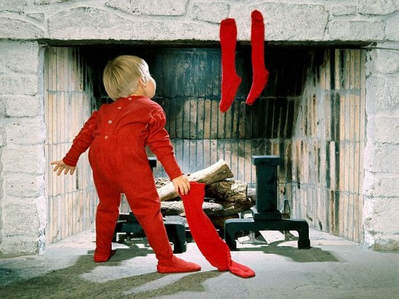 Advent is uncharacteristically short this year; only three Sundays, with the forth being Christmas Eve. That means there are only 21 days left to get everything done. I haven’t even begun to scramble through the malls or surf Amazon to find that perfect gift to max out my credit card. It’s not like I haven’t had ample warning. The commercialization of Christmas has been well underway long before Halloween. And I swear Hallmark has been playing an endless loop of Christmas movies since last December. Mark 13:24-37 Everywhere you look, the world’s busyness is pointed towards Christmas. But seldom is it pointed toward the coming of the Christ child. Even today’s passage from Mark has us looking somewhere other than the manger. Instead of kicking off with angels and virgins, we get heavenly earthquakes and stars dropping from the sky. Such strange, apocalyptic imagery might be good for those ancient Palestinians who awaited the day of the Messiah. But we’re more sophisticated than those country bumpkins, aren’t we? We know exactly the day when Jesus will come, right? After all, we have advent calendars filled with little chocolate squares to help us count down the to the big day. But there’s a big difference between waiting for Christmas and waiting for Christ. Obviously, we know that Christmas will come every year on Dec. 25th. And when it comes we pretty much know what to expect. There will be some surprises to unwrap, but for the most part Christmas day is pretty much planned out well in advance. However, waiting for Christ to come – or come again – requires something more, an expectant watchfulness and presence that helps us stay prepared for the day when Jesus will walk among us. Being present is hard because it requires us to “keep our heart open and soft, and our mind receptive without division or resistance,” writes Richard Rohr. “It’s easier to believe doctrines—and obey arbitrary laws—than it is to undertake the hard work of being present.” And thus, the waiting really is the hardest part. And it’s hard because we have to take it on faith, as we take it to heart. Now there are different kinds of waiting. There’s passive waiting and active waiting. Passive waiting is the businesswoman waiting in an airport terminal about to catch her connecting flight. She’s on Facebook or plays Candy Crush while she waits to board. Active waiting, on the other hand, is the woman standing at baggage claim, anticipating the moment she gets to embrace her husband for the first time since his deployment six months ago. Her only focus is on reuniting with her beloved. There’s a big difference between waiting for Christmas and waiting for Christ. Last spring, my cousin passively sat in her doctor’s office waiting for her routine check up. As she sat there, reading out of date magazine, she stared at a young teenage girl expecting her first child. Other than setting the appointment and not judging the young girl unfairly, Megan didn’t have to do much more than wait for the doctor. It wasn’t until she went in and learned that she too is pregnant, with twins, that she began actively waiting. And celebrating and panicking too I’m sure. With each new day, Megan awakes full of anticipation and expectation. With two sets of feet kicking her from within, she has no other choice but to be totally present; living every moment. And because she doesn’t know when her babies will actually come, her focus is right where it ought to be; waiting for her two daughters and preparing her life for something she has no control over. Our waiting for the coming Christ is no different. We must always prepare each day by remaining present and active in our faith.  Three times Jesus states, “to keep alert, stay awake!” He calls us to be alive, fully and faithfully, as if he’s here, right now among us. We don’t want to be caught off guard…or miss it completely. Mark 13:24-37 While looking at a cup of tea, a Buddhist priest said, “You must be completely awake, in the present to enjoy the tea. Only in the awareness of the present, can your hands feel the pleasant warmth of the cup.
"Only in the present, can you savor the aroma, taste the sweetness, and appreciate the delicacy. If you are dwelling on the past, or worrying about the future, you will completely miss the experience of enjoying the cup of tea. Instead you will look down at the cup, and the tea will be gone.” “Beware, stay awake!” There is no time to drift off in the waiting room, or sit around for our boarding number to be called. Rather we ought to be more like a waiter who is continually busy serving others that we have no time to sit down and count tips. Advent is a time of active waiting, a time to stay awake and alert, living faithfully… not because Christmas is just around the corner and you want Santa to notice…but because Christ has already come, died and has been raised, and you want the world to know it. We are called to live in such a way that the world will see how God wants to lavish us with abundant love, so that, one day, we will all become like Jesus. In his first letter, John the Apostle writes, 'All of us who look forward to his Coming stay ready – with the glistening purity of Jesus' life as a model for our own' (1 John 3:2-3). By this we will not only be prepared to live in the promised realm of God when it comes, but we also get to experience what life in that realm is like today. Our Advent wait should always draw us nearer to Christ; always expecting and anticipating his presence in and among us. By living in such a way, in a way that we can see Christ in the face of every person we come in contact with, allows us to experience and celebrate the joy of God’s divine love as if every day is Christmas. Work Cited Bartlett, David L., Barbara Brown Taylor, eds. Feasting on the Word, Year B, Vol 1. Louisville: Westminster John Knox Press, 2008. Gumbel, Nicky. Bible in a Year devotional. December 2, 2017. Rohr, Richard. Yes, And...Daily Meditations. Franciscan Media, 2013 |
Ian MacdonaldAn ex-copywriter turned punk rock pastor and peacemaker who dedicates his life to making the world a better place for all humanity. "that they all might be one" ~John 17:21“Prius vita quam doctrina.”
~ St. Thomas Aquinas (1225–1274) * “Life is more important than doctrine.”
Archives
June 2024
|
